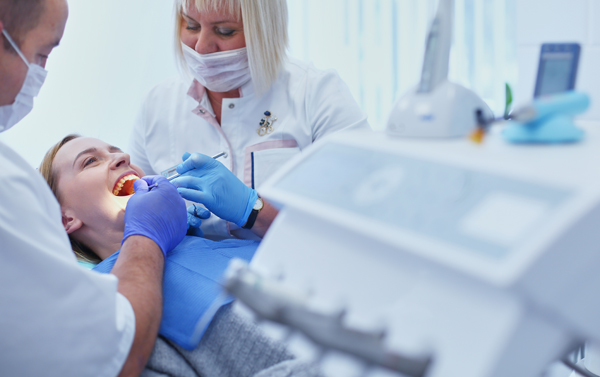Foods to Help Heal Cavities Naturally

Cavities are a common occurrence, and dental fillings are usually the preferred solution to tooth decay, regardless of how minor the decay may be. More severe cavities, those that have reached the nerves and are causing discomfort, usually always require a filling. However, there are instances when you can heal smaller cavities naturally from the comfort of your home; that solution comes from your food choices.
What to eat to help heal cavities
The following are a few types of foods to eat to help heal cavities naturally:
Foods containing calcium
Calcium contributes to dental health. Aside from contributing to rebuilding the enamel regularly, calcium also helps with saliva production and remineralizing the teeth. Many people think that the best source of calcium is dairy products such as milk and cheese, but that is not always true. Many people are allergic or intolerant to dairy, and traditionally produced dairy products have hormones and antibiotics that have negative effects on any possible mineral contributions.
Great sources of calcium include seafood such as salmon, clams, oysters and shrimp, as well as plant-based foods such as greens, broccoli, cauliflower, nuts, olives and figs.
Foods containing vitamin D
Usually called the sunshine vitamin (generated when the skin is exposed to the sun), vitamin D is more of a hormone than a regular vitamin. It affects the body’s ability to absorb calcium and phosphorus, which means any effort to supplement those minerals will be futile if your vitamin D level is deficient.
To bolster this point, a couple of research and clinical trials have discovered that vitamin D had the potential of preventing the occurrence of tooth cavities or decay, which is mostly responsible for the arguable conclusion that vitamin D can limit the occurrence of dental caries. Taking in the sun is the most effective way to increase vitamin D levels, but you can get vitamin D by eating foods such as egg yolks, mushrooms and fish like sardines and salmon.
Foods containing vitamin K2
Just like vitamin D, vitamin K2 controls the way the body absorbs minerals. These two vitamins work together to make sure the teeth have enough phosphorus, calcium and magnesium required for remineralization. Vitamin K2 is present in egg yolks, chicken liver, fermented cod liver oil and ground beef, including organic dairy products like cheese (for those who are dairy-tolerant).
Foods containing magnesium
Many processes in the body, including teeth remineralization, depend on magnesium. Magnesium is responsible for balancing body nutrients, including calcium and phosphorus, which if not managed may cause teeth demineralization. Consider eating foods rich in magnesium such as squash seeds, cacao, leafy greens, molasses, blackstrap and avocado.
Foods containing phosphorus
The presence of phosphorus in the body can protect the teeth against cavities. Consider consuming foods rich in phosphorus but free of phytic acids, such as meats, dairy products and eggs.
The bottom line
The fact is that the most effective way to heal cavities is to prevent them from happening in the first place, but fortunately, there are foods that help to heal existing cavities and are also effective for preventing the formation of new cavities. If you think you have a cavity, be sure to contact your dentist to make sure a filling or a more intensive treatment is not needed.
Request an appointment here: https://www.gatewaydental.org or call Gateway Dental Dr. William Swann DDS at (301) 485-7492 for an appointment in our Bowie office.
Check out what others are saying about our services on Yelp: Read our Yelp reviews.
Recent Posts
Endodontics is primarily thought of as restorative treatment, but it can have cosmetic benefits as well. Your smile is one of the first things that other people notice. A healthy-looking smile can make you look more attractive, compared to having damaged, poorly managed teeth. Restoring the way that a tooth looks can help improve your…
There has been a lot of talk about dental implants in recent years. Dentists recommend them, and patients benefit from the results of the treatment. Implants restore the full function of the mouth and revitalize smiles. People can enjoy newfound self-esteem and the self-image and health they have been looking for. You may wonder whether…
Invisalign® is increasingly becoming a very popular teeth-straightening treatment option. The process is simple and relatively comfortable, which is why it is growing in popularity. However, because it is not as old or traditional as braces, it can be helpful to get familiar with how exactly the process works. Keep reading to learn more about…
Adjusting to new dentures is a familiar feeling to the 36 million Americans that have no teeth, according to the American Dental Association (ADA). Dentures allow those Americans to eat and speak normally when they have lost their natural teeth to age, gum disease, or dental trauma. Unfortunately, even the best dentures are expected to…


